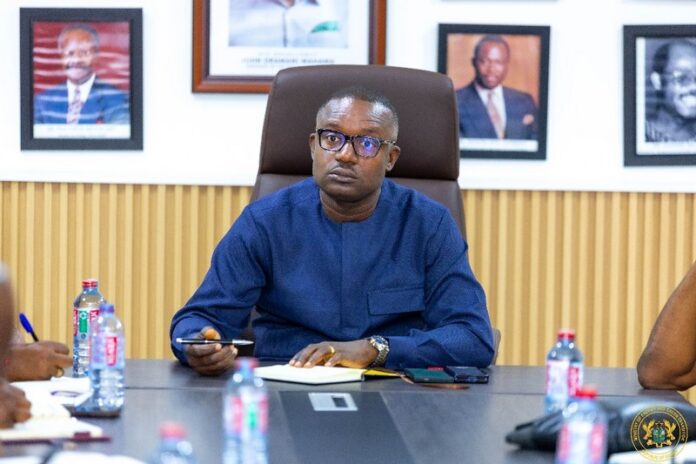The Minister of Energy and Green Transition, John Jinapor, has revealed procurement breaches and potential corruption within the Electricity Company of Ghana (ECG).
This follows the discovery that over 1,300 containers meant for the power distributor have gone missing from Tema Port.
Speaking on TV3’s KeyPoints on March 29, 2025, Mr Jinapor disclosed that systemic procurement violations within the Energy Ministry, particularly under the previous Akufo-Addo administration, had contributed to the scandal.
He pledged to unveil further details in due course.
“The level of procurement infractions within the Energy Ministry is shocking. I will be providing more details soon,” he stated.
His revelations came amid discussions on the unaccounted-for 1,300 containers initially intended for ECG. So far, only 40 have been retrieved, raising concerns about deep-seated irregularities in the procurement process.
Mr Jinapor pointed to a cartel-like operation within ECG, which he believes has facilitated these losses. He called for a forensic audit to unravel the circumstances surrounding the disappearance of the containers and to hold all culpable parties accountable.
“The ECG has procured items well beyond legal limits. We need a forensic audit to trace the missing containers and bring all responsible individuals to book,” he asserted.
Highlighting financial mismanagement within the power sector, Mr Jinapor stated that the systemic breakdown began in 2022, with procurement overspending reaching alarming levels in subsequent years.
He noted that in 2023 alone, ECG procured items worth GH₵8.3 billion—far exceeding the approved budget of GH₵935 million.
The Minister assured that investigations would extend beyond ECG, examining the broader procurement structures within the Energy Ministry.
He stressed the need for reforms to prevent further losses, including restructuring ECG’s procurement unit and enhancing oversight mechanisms.
Echoing these concerns, economic analyst Senyo Hosi called for swift action, describing the scandal as a “systematic failure of governance.”
“Every person responsible for this must be held accountable. A thorough forensic audit is necessary to unearth the real culprits,” Mr Hosi urged.
ALSO READ:

